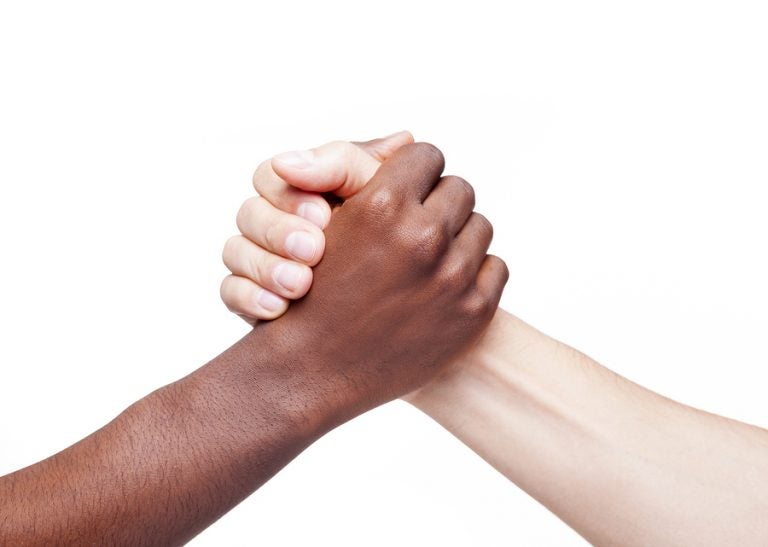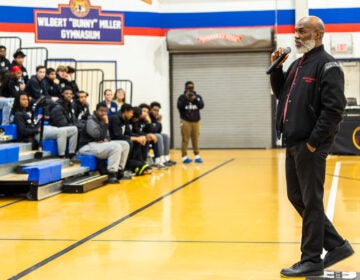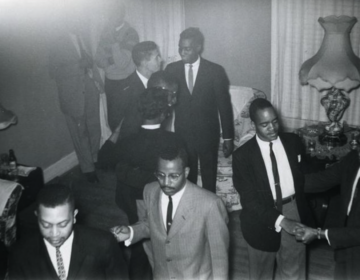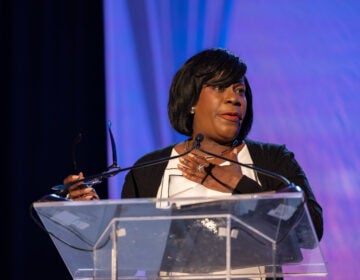Talking about race in America means perfecting the art of feeling uncomfortable
I sometimes wish I could stop talking about race, just for a day. It gets exhausting. I shouldn’t have to defend my race on a daily basis.

(cristovao/Big Stock Photo)
We are nearing the end of Black History Month. “Black Panther” is an incredible success. The Obamas’ portraits are perfect. Life seems pretty great these days — if you disregard just about every headline about what the White House is doing.
During Black History Month, it’s time to get uncomfortable. I don’t mean sitting next to a smelly guy on the train. I mean talking to each other about race.
You know what I’m talking about — that shaky feeling you get whenever you say you want your coffee black, or even that one time in your literature class when you stumbled over the word “Negro” — or, even worse, the notorious N-word.
This type of racial discomfort is where I live. And it’s amazing — because in this discomfort zone is where you are truly able to learn about race and not just process your emotions surrounding it.
Today I find it impossible to stop talking about race. Conversations about race travel with me: in my family home, in my classroom, among my friends and roommates. Race as I know it to be — as a transracially adopted black male born in Charlottesville, Virginia — is a “social construct” that fuels just about every aspect of American life. Wherever I go, race follows; wherever race goes, I follow. This mutual dependency fuels my activism. At every march, rally, or protest that I organize or attend, race is a shadow or a breeze and is always with me.
I can’t go anywhere without the stark reminder that I am black, especially and unfortunately in New York City, where I go to college. New York is a city known to be a melting pot of cultures, but it is also a city that ostracizes me every day. A simple walk to class can be excruciatingly stressful. It’s as if I have a target on my backpack. A change of my facial expression or an adjustment to my gait can trigger racially biased reactions from all sorts of people around me. Just the other day, I was stopped by security at my own university for looking suspicious as I walked to my dorm from a night class. These moments might concern the average person, but this is my daily life.
I sometimes wish I could stop talking about race, just for a day. It gets exhausting. I shouldn’t have to defend my race on a daily basis. But then I open Facebook or Twitter, and that peace is disrupted by news about another police officer killing a black man or a racially insensitive comment from a friend of a friend. I have accepted this disruption as the reality of being black in America. I use this constant awareness not only as empowerment for myself but also as a form of admiration for my race; we have persisted and will continue to persist until we are truly free.
Black people have a shared, unstated connection simply because of their race. This unity allows me as a young black man to never go through the world alone. The mere presence of a friendly black face can comfort me enough to carry me through my daily pains.
While I will forever love being black, I will never love being black in America. There’s a very stark difference. As James Baldwin points out, “To be Black and conscious in America is to be in an constant state of rage.” Being black is my heart, my body, and my soul. I would feel incomplete to go a single day without being aware of my blackness.
This is why I simply cannot stop talking about race. Race cannot be talked about without me. I am a black man in America.
Talking about race is not always easy, and it is rarely comfortable. To do it, you must work toward a radical empathy — radical because it is so uncommon. Stepping into someone else’s shoes and truly understanding their perspective and truth is rare.
For me, talking about race is like wearing a pair of socks. I wake up, I put them on, and go about my day. Some days it stinks, some days it leaves blisters, and some days the conversation is warm and cozy.
Those socks are like a second skin. They go with you everywhere. You can’t trade them with someone else or pretend to know how another person’s socks feel.
Talking about race may be unavoidably uncomfortable, but soothing discomfort isn’t the aim. It is simply acclimating to that feeling you get outside of your comfort zone. Then talking about race, walking freely in that discomfort zone, in your own socks, is what makes it sustainable.
—
Sam Gerlach, a graduate of Springside Chestnut Hill Academy in Philadelphia, is a student at New York University.
WHYY is your source for fact-based, in-depth journalism and information. As a nonprofit organization, we rely on financial support from readers like you. Please give today.




